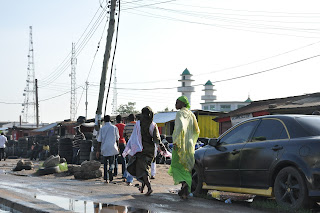In the meantime, just sharing some music. I've had this song stuck in my head for the longest time, and it seems very appropriate here. I hear it all the time.
Enter your email in the space below to receive an update every time I publish a new post!
Tuesday, December 11, 2012
Funny The Way It Is
We have internet back at my house, so I'm hoping to start posting (somewhat) regularly.
In the meantime, just sharing some music. I've had this song stuck in my head for the longest time, and it seems very appropriate here. I hear it all the time.
In the meantime, just sharing some music. I've had this song stuck in my head for the longest time, and it seems very appropriate here. I hear it all the time.
Sunday, December 9, 2012
Eid Mubarak!
Disclosure: I wrote this post almost a month ago but due to a combination of travelling and lack of internet access at my house, I am just now getting it out. It's a little less relevant now, but better late than never!
A few weeks ago, I rushed into a taxi, running late for the Eid Mubarak festivities that the U.S. Embassy had organized for the YES Abroad participants to observe. I had planned to take the tro tro and at first was annoyed with myself that my last minute rushing had forced me to take a more expensive private car.
As the ride went on though, my irritation drifted away, replaced by curiosity and appreciation. As we wove through the maze of streets and zoomed past the ocean, more and more Muslims crowded the sidewalks and the streets. As I watched their hijab or kufi covered heads walking, biking, or riding tro tros to the nearest mosque, just like me, I felt part of something bigger. It felt as though I was part of a great migration - towards Islam of course, but also towards more general reflection and renewal of faith. I itched to move from my position as a bystander in a taxi to a participant in the day's rituals and festivities.
A few weeks ago, I rushed into a taxi, running late for the Eid Mubarak festivities that the U.S. Embassy had organized for the YES Abroad participants to observe. I had planned to take the tro tro and at first was annoyed with myself that my last minute rushing had forced me to take a more expensive private car.
As the ride went on though, my irritation drifted away, replaced by curiosity and appreciation. As we wove through the maze of streets and zoomed past the ocean, more and more Muslims crowded the sidewalks and the streets. As I watched their hijab or kufi covered heads walking, biking, or riding tro tros to the nearest mosque, just like me, I felt part of something bigger. It felt as though I was part of a great migration - towards Islam of course, but also towards more general reflection and renewal of faith. I itched to move from my position as a bystander in a taxi to a participant in the day's rituals and festivities.
I arrived at the AFS office and met the other exchange students, their heads already wrapped. Soon enough, Miriyam's painted hands twirled around and around my head, carrying fabric from my chin to my temple and back again. She tightly pinned the fabric with the efficiency and sureness of someone who had performed the same ritual many, many times before.
As we drove to the mosque, we witnessed the same migration that I had witnessed earlier. I felt honored to be a part of this group, if only for a day.
After the sacrifices, we were joined by a leader in the Muslim community of Accra named Seth. We took the bus with him to another mosque, this one much smaller and painted bright turquoise. Before entering the mosque we performed ablutions. Using small teakettle shaped pitchers, we washed our legs, arms, hands, and feet three times each. We then washed our necks and the baby hairs that were tucked under fabric. We used dry fingers to cleanse behind our ears.
Seth's house was a small, humble home, filled with love. His son climbed on him like a jungle gym and, like any naughty boy, ignored his father's commands to go and say his prayers. His wife made us delicious groundnut soup and rice balls. We devoured the food while watching live footage of the hajj in Mecca. In a world defined by divisions and fighting, it was powerful to witness so many people from around the world coming together peacefully. I got that sense just through watching it on TV, so I can only imagine how powerful it is actually being there. Seth described his trip to Mecca a few years ago, and his strong desire to go back was clear in the emotion that shone through his words.
Back at the bus, Seth surprised us each with our own copy of the Qu'ran in English and we were instructed on how it should be kept.
Subscribe to:
Comments (Atom)




























